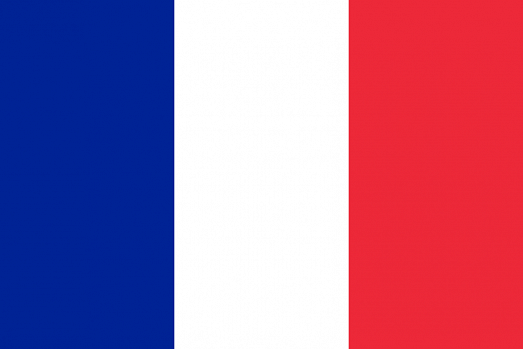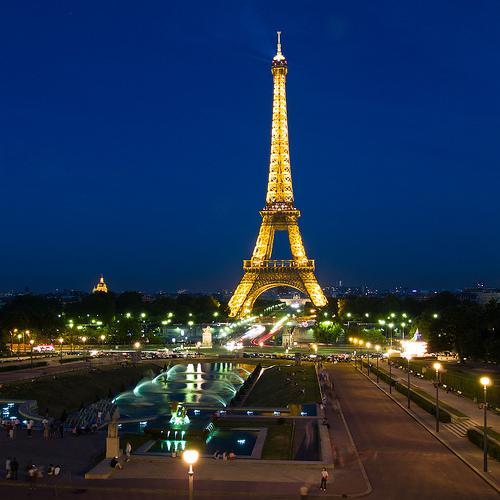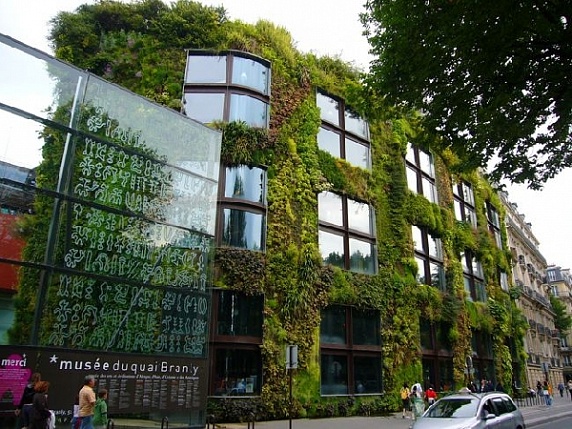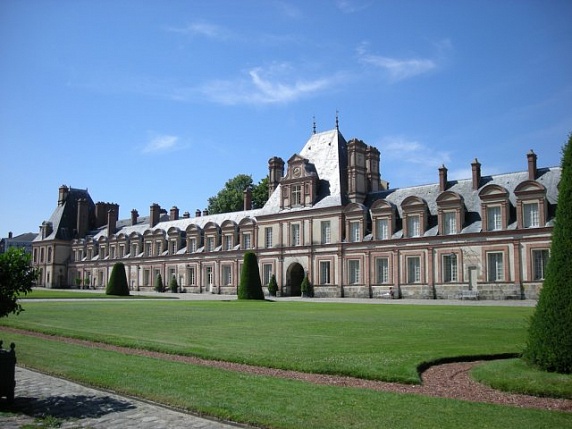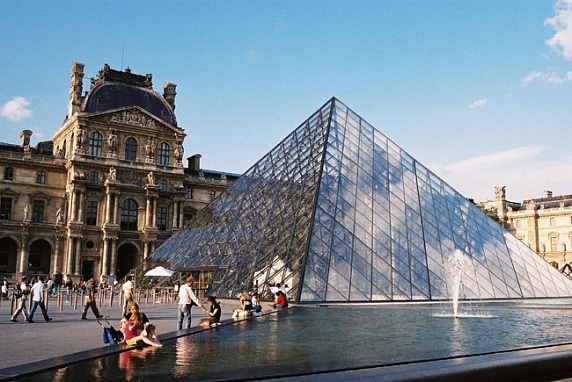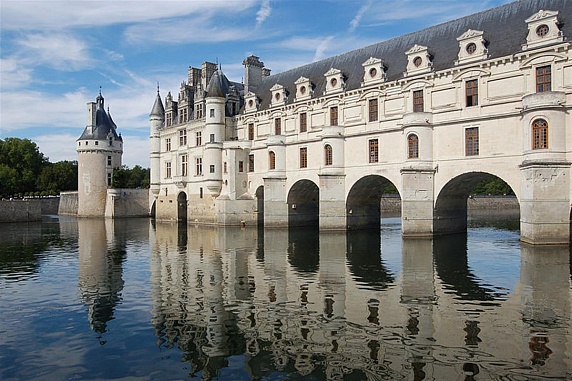 Французская Республика
Французская Республика
Foreign Minister Sergey Lavrov’s remarks and answers to media questions at a joint news conference following talks with French Minister of Europe and Foreign Affairs Jean-Yves Le Drian, Moscow, February 27, 2018
My French colleague, French Minister of Europe and Foreign Affairs Jean-Yves Le Drian, and I had extensive talks. Even though this is our first face-to-face meeting this year, we regularly compare notes on key issues of the bilateral agenda and international affairs during our telephone conversations.
Today, we focused on the preparations for the visit by President Macron to Russia scheduled for May, including his participation in a plenary session of the St Petersburg International Economic Forum. Our respective leaders also plan to participate in the first meeting of the Coordinating Committee of the Trianon Dialogue Russian-French Civil Society Forum, which was established on the initiative of President Putin and President Macron following their last year’s meeting in Versailles. We expect that the outcomes of that visit will make a significant contribution to re-invigorating Russia-France relations across all areas.
We noted with satisfaction the continuing growth in trade. We agreed to work on consolidating and promoting the positive dynamics.
We praised the level of cultural exchanges. The cross-year of cultural tourism has just ended. Another large-scale project - Year of Russian and French Language and Literature – will be launched in March. The Russian-French Commission on Cooperation in the Sphere of Culture, Education and Youth Exchanges is working hard, and its next meeting is scheduled for mid-March.
We discussed in detail the situation in Syria. We spoke in favour of restoring peace and stability in that country as soon as possible, with unconditional respect for its territorial integrity and sovereignty. I informed Mr Le Drian about the results of the Syrian National Dialogue Congress held in Sochi on January 30, which was designed to achieve the goals set out in UN Security Council Resolution 2254. The outcomes of the Congress include the adoption of the Final Declaration on the Principles of the State Development of Syria, which supports the UN-formulated approaches. The document also emphasises the fact that any arrangements related to re-building the Syrian state after the conflict should be reached by consensus among the Syrian parties. The Congress also adopted an Appeal to the international community with a call to help resolve Syria's humanitarian crisis and issues related to rebuilding its infrastructure, industry and the economy in general. We are satisfied with the results of the Congress, which was attended by representatives of Syria's neighbours as observers, as well as representatives of the permanent members of the UN Security Council, including France, which sent a staff member of the French Embassy to Sochi to participate in this event.
We reviewed other international policy issues as well. We maintain a dialogue with France on the Ukrainian settlement process. Our leaders, their aides, and foreign ministers meet and communicate by phone as part of the Normandy format. Such contact was planned on the sidelines of the Munich Conference on Security Policy, but because of conflicting schedules, such a meeting will take place later.
We are also interacting on issues related to Russia-EU relations, not a particularly well functioning NATO-Russia Council, the situation on the Korean Peninsula and other crisis situations in the Middle East and North Africa other than Syria, which are, of course, Libya, Yemen and Iraq.
In general, our foreign ministries have a very busy agenda, which we agreed to continue to work on.
Question: Jaysh al-Islam, while supporting Russia’s proposal to introduce a humanitarian pause in general, refused to let civilians out of Eastern Ghouta saying that UN Security Council Resolution 2401 does not include this condition. How might this interfere with the goals of the truce?
Sergey Lavrov: I do not agree with Jaysh al-Islam’s statement that the resolution does not allow civilians to leave Eastern Ghouta, which they are citing as a reason for not allowing them to leave while accepting Russia’s proposal for daily five-hour humanitarian pauses. If I remember correctly, article 10 of the UN Security Council Resolution 2401 has all the demands on those laying siege to residential areas: lift the siege of Eastern Ghouta, the Yarmouk refugee camp and the al-Fuah and Kafriya Shiite enclaves. Everyone maintaining the siege must provide access to humanitarian aid, medicine and other necessities, and allow out those who want to leave, including from Eastern Ghouta. The fact that Jaysh al-Islam takes this position makes us wonder how sincere the group was when it told the UN Security Council President that it agreed to comply with the resolution, as Minister for Europe and Foreign Affairs of France Jean-Yves Le Drian has just said.
Question (addressed to Jean-Yves Le Drian): Mosul is no longer in the headlines because of the developments in Syria. What should be done, in France’s opinion, to balance this situation and will it attempt to deal with the humanitarian catastrophe in Mosul the way it did in Eastern Ghouta?
Sergey Lavrov (adds after Mr Drian): We welcome the progress the Iraqi government made with others’ support. We attended the conference in Kuwait that was dedicated to restoring normal life In Iraq. We can see that we have achieved a lot in this area due to the fact that Iraq has solved its main problem: it prevented ISIS from establishing a caliphate. Despite isolated ISIS groups that still carry out terrorist attacks, it is much easier for Iraq to concentrate on returning to ordinary life and rebuilding everything the war destroyed.
As for the humanitarian situation in different parts of Syria, we spoke in detail about this today and have agreed that the situation is far from perfect. You know about our position regarding Eastern Ghouta. We have indeed voted for UN Security Council Resolution 2401 demanding that all parties cease hostilities throughout Syria. The resolution also calls on the external players to use their influence with the parties on whom the implementation of this comprehensive ceasefire depends. It is obvious that we are as yet far from attaining this goal. The latest information, which has been made public here, confirms that this resolution should be implemented via agreements on the ground.
In light of the dire humanitarian situation in Eastern Ghouta, Russia has decided not to wait until all parties agree on a specific pattern of actions. Russia and the Syrian Government have taken a unilateral decision to announce daily five-hour humanitarian pauses starting today. Humanitarian corridors have been marked out for the delivery of humanitarian assistance during these pauses and for the evacuation of all civilians who wish to leave, in full compliance with paragraph 10 of UNSC Resolution 2401. We will see if the three armed groups, which claim to have disengaged from Jabhat al-Nusra in Eastern Ghouta, honour their stated commitment to comply with UNSC Resolution 2401.
We remember how many countries expressed their deep concern and criticised the developments in Eastern Ghouta a year ago, when Russia and the Syrian Army conducted operations on the ground to liberate Eastern Aleppo. That operation included a large-scale evacuation of civilians to create conditions for finishing off the terrorists who refused to leave Eastern Aleppo. It was said then that the operation was very risky, because those who leave Eastern Aleppo would be unable to return there. There was fear of an ethnic cleansing. I believe it was yesterday when the Aleppo governor said that some 200,000 of those who had left the city have returned. A third of the buildings damaged in the war have been restored. And the process is going on.
Regrettably, and we have stated this publicly, we do not know what is going on in Raqqa that was liberated from the terrorists by the US-led coalition. According to the photo and video evidence at our disposal (few people are allowed to enter Raqqa), the city has been razed to the ground. It is true that the terrorists have been bombed out. Most of them were killed there, but many left Raqqa. According to our information, the streets are full of dead bodies which nobody is removing. The epidemiological situation is dramatic: there is no water and no sewage system. We have proposed that the UN or the International Committee of the Red Cross dispatch an emergency mission to Raqqa to help the international community understand the developments and the humanitarian situation there. This would be fully in the spirit of UNSC Resolution 2401, which calls for dealing with humanitarian problems throughout Syria.
Likewise, we need to know about the situation in the Rukban refugee camp, which the Americans are guarding and which nobody is allowed to leave. It is believed that there are some 60,000 refugees in that camp, but it is a rough estimate. We would like to ensure humanitarian access to this part of Syria as well, or, at least, to dispatch a mission to find out what is really going on there.
Question (addressed to Jean-Yves Le Drian): Does France support US President Donald Trump’s idea of modifying the Joint Comprehensive Plan of Action (JCPOA) on Iran’s nuclear programme so that it also covers Iran’s missile programme? If France supports this idea, what does Russia think about it?
Sergey Lavrov (speaking after Jean-Yves Le Drian): We fully agree with France that the JCPOA must be implemented in full and that it would be extremely dangerous to open it up. If there is a desire to discuss any other issues related to Iran in the format that coordinated the JCPOA, these discussions must involve Iran and should be held on the principles that were used to coordinate the JCPOA, that is, on the basis of consensus rather than ultimatums.
You have asked about the Joint Comprehensive Plan of Action and Russia’s attitude to it. Russia is now often referred to as a “revisionist power,” including even in official US doctrines. It is claimed that we seek to revise the underlying principles of the world order. But if we look at Washington’s actions regarding the JCPOA and the Paris agreement on climate change, or at its views on the WTO as “a disaster”, we may well wonder about who is revising what, as well as about the fate of the agreements that have been achieved and approved at the global level.
Question: Does Russia want to hold specific talks on Iran’s ballistic missile programme, as the other Western countries want? Do you agree that Iran is destabilising the region?
Do you think that the operation in Afrin targets terrorists and hence cannot be included in the ceasefire conditions, which you are trying to establish throughout the region?
Sergey Lavrov: You have asked about Russia’s views on changing the JCPOA. We view this negatively. Jean-Yves will probably tell you about what they are discussing at the US + the EU Three group. I planned to ask him about this during our business breakfast. But maybe he will tell us about this now, if it’s not a secret.
As for our attitude to Iran’s destabilising role in the region, the wording of your question is wrong. There are very many destabilising factors in the region. The destabilisation period began with the invasion and collapse of Iraq, which is still in the throes of a very difficult movement towards national unity. All of this is the result of a rash action undertaken primarily by Washington and London, which Moscow, Paris and Berlin denounced. They did not support it, and with good reason. The disintegration of the region continued with the aggression against Libya, which destroyed the Libyan state and turned it into a black hole through which terrorists and illegal weapons move southward, including to Sub-Saharan Africa, where France has vested interests, and through which illegal migrants enter Europe. We must not forget about the difficult situation in Yemen either. Much more is going on in the region. There is also the unsettled Palestinian problem. There are forces, many forces that are destabilising the region.
I don’t think it is fair that the blame for all of this is laid on Iran, with demands being made that it must keep within its borders and not try to project its legitimate interests beyond its territory. Iran, just as Egypt, Saudi Arabia and many other regional countries, cannot be denied the legitimate right to develop relations with the outside world. It is another matter that these relations, no matter what country we are talking about, must be transparent. This is what Russia has been urging for years when it proposed launching a dialogue on confidence and security measures in the Persian Gulf between the six Gulf countries, Iran, the five permanent UNSC members, the EU, the Arab League and the Organisation of Islamic Cooperation (OIC). This proposal is still on the table. Recent statements indicate the rising interest of many parties in this proposal. We are ready to actively promote it. The regional problems can only be settled through an inclusive and constructive dialogue in individual countries, such as Syria, Libya, Iraq or any other country, or at the interstate level, between states.
I believe that the main condition for prodding the region towards this is reconciliation between the Sunnis and Shiites within the Islamic world, so that nobody would use the religious factor, including the factor of strife in Islam, for advancing their geopolitical interests.
As for Iran and the fact that a number of countries blame everything on it, I would like to remind you about the open letter CIA, FBI and US military intelligence veterans wrote to the US President last December regarding Iran’s role in the region and the fairness of the US policy regarding Iran. They cited US documents, primarily the State Department list of the terrorist attacks that targeted US citizens. Nearly all terrorist attacks staged around the world in the past few years, including those that involved US citizens, were initiated by ISIS, al-Qaeda, Boko Haram or Jabhat al-Nusra. The policy documents of these groups declare Iran their enemy, a feeling reciprocated by Iran.
The US Department of Homeland Security has compiled a Global Terrorism Index, which mentions 14 Islamist groups that directly threaten US interests. Of these 14 groups, all but one are anti-Iranian. Draw your own conclusions from these statistics. As I said, this is not my invention. This is what US intelligence veterans write in their open letter to the US President.
Judging by your question, this letter has escaped the attention of such a respected news agency as Reuters, which tends to give much more attention to less newsworthy events. I hope that your will read this letter now and will provide a professional journalistic assessment of its significance.
